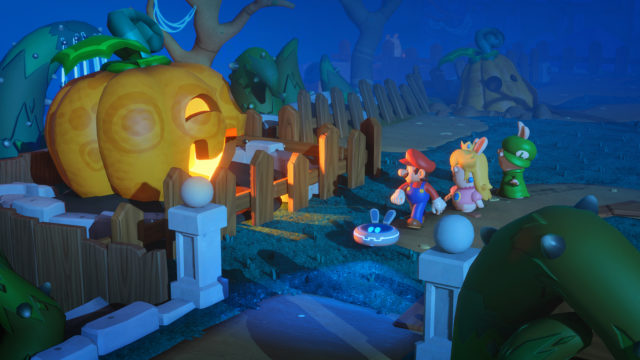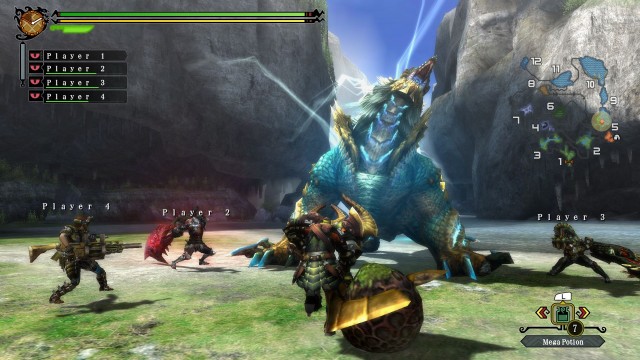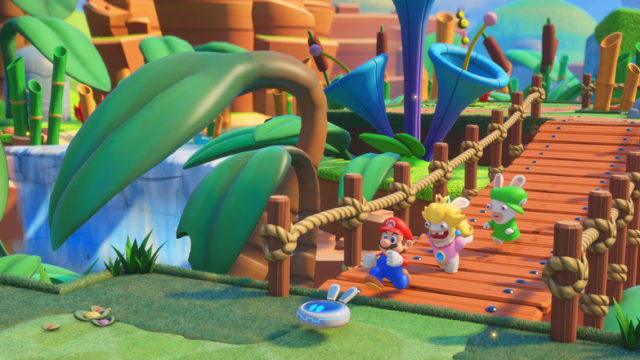
Sometimes the most astonishing revelations are the ones hiding in plain sight. For example, sometimes the fault lines in a relationship are obvious, but people only truly see them after the relationship is very old or has ended entirely. We realize that something we thought was one thing was in fact something else entirely, but the clues were always there, visible for everyone to see.
Going back over two decades now, Nintendophiles have clung to the promise of third party hope. Like Cleveland Brown fans in August, each new system heralds the belief that this is the time third parties really jump on board. This is the time it finally happens. And Nintendo has fanned those flames by continually professing its love for third parties, saying they are a crucial part of the company’s business model.
Except they aren’t. Since 1996, third party games on Nintendo systems have bordered on inconsequential. On Nintendo 64, for example, the only significant third party games had Star Wars in the title, and even some of those were published by Nintendo. On GameCube: Resident Evil 4. On Wii, other than Monster Hunter Tri or Epic Mickey, the best-selling third-party games involved dancing or fitness. And on Wii U, every single title that sold more than 1 million units was either a first party title, a second party title, or a third party title that used Nintendo characters. On every one of these consoles, third party support started relatively low, and mostly dried up by the time the console life cycle ended.

So here we are now with Nintendo Switch. Once again Reggie and company are telling us that we’re going after the third parties. This time, they’re gonna love our unique interface, and the developers are already talking about how this is the Nintendo console they have to go for.
I don’t have a crystal ball … but I do have a Nintendo history going back to 1996 that says a third party explosion isn’t going to happen, because I don’t think Nintendo cares enough about third parties to want to make it happen. And because Nintendo, I think, will make sure it doesn’t happen, either actively or as collateral damage to Nintendo strategy.
This isn’t necessarily a criticism. This is a business model, one that has proven successful throughout Nintendojo’s long existence. And one that has still produced a lot of wins for those who love Nintendo systems.
The one truth nobody will dispute is that the most important games on any Nintendo platform, especially post-SNES, are first and second party games. Nintendo has long made its living on first and second party games. It’s a fact of life. You may be have trouble listing third-party games off the top of your head for Nintendo, but you won’t have that same problem with first- and second-party games. If you’re like me, you’ve already got some variation on Mario, Metroid, or Zelda in your head, if not one of Nintendo’s other successful IPs, such as Pokémon or even Xenoblade.
At some point, Nintendo as a business concluded that it could by and large survive, and even thrive, on a maximum of first- and second-party goodness and a minimum of third-party support, at least relative to Nintendo’s competitors. I might go a step further and wonder if Nintendo prefers it that way, since third-party sales potentially take away from game sales profits from Nintendo games. Why have a market on your own system when you can have what is basically a monopoly?
The model has worked. Nintendo 64, GameCube, and Wii U in particular suffered from lackluster sales compared to the competition, and Nintendo is by no means bankrupt.

Nintendo can’t say any of this, of course. They can’t say “we prefer a system with relatively few third party titles, especially successful titles that would draw away from our first-party profits.” That’s a PR nightmare waiting to happen, and would enrage a Nintendo fanbase that might be without equal in the gaming world in its devotion. We need to know Nintendo wants to own the competition in third-party quality, and Nintendo tells us that they do.
But, again, I don’t think that’s true. And if I’m right — and I know some people might disagree with me — what does that mean for me? Should I despair that my beloved Nintendo has been less-than-honest with me this whole time about its third-party desires?
The answer, in my view, is no. Because while history suggests that Nintendo Switch is probably not going to deliver a third party bonanza, and that’s sort of sad, it also means that Nintendo is going to deliver the goods itself, because that’s what makes this model work. The company has already delivered Breath of the Wild, which was awesome. Super Mario Odyssey will be awesome. Xenoblade Chronicles 2 will be awesome.
And while you may wish that there were more third-party games on your Switch that you see on other systems, you can take comfort in knowing that the quality will be there. And you will get a few third-party games worth playing, too. Just not a lot.
A relationship with Nintendo isn’t perfect, but isn’t that true of every relationship?




 ShareThis
ShareThis





